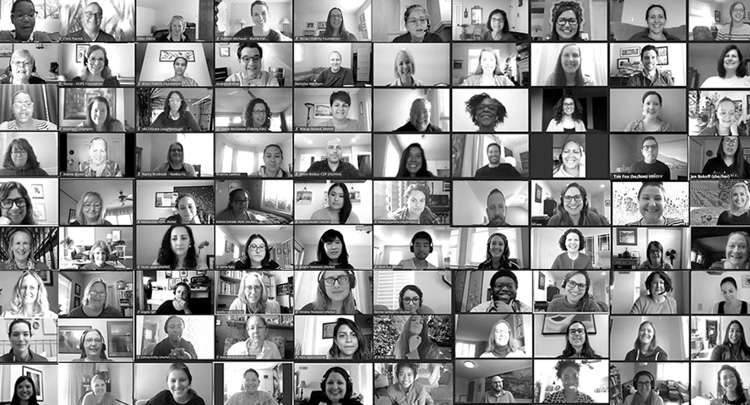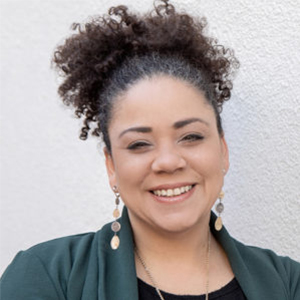How Grants Management Teams Can Advocate for Equity and Themselves


At PEAK Grantmaking, we focus on the “operations” side of the house in philanthropy, supporting the individuals and teams that are responsible for crafting the processes and procedures that uphold and enforce the values and policies of their organizations.
PEAK Grantmaking is a network of more than 5,000 grants management professionals and 400 contributing organizations. These grants management professionals occupy a unique space inside of philanthropy and inside the philanthropic workspace. Yet, the position is often perceived as low-power and not invited to the decision-making table. In some organizations, the attitude of “We’ll decide; you implement” prevails.
It’s time for that to change, and here are three key resources that PEAK has developed for grants management professionals and others to use in advancing the conversation.
A competency model is a guideline used to define the specific skills, knowledge, and behavioral proficiencies that enable an employee to perform their job successfully. While grantmakers vary differently across mission, size, and type of organization, the competencies that build what it takes to be a successful grants management professional are common across all. A competency model for professions inside the field of philanthropy can help to standardize practices like job descriptions, recruitment, talent management, and performance appraisals.
PEAK Grantmaking’s Grants Management Professional Competency Model, released in 2018, made clear that not only do grant professionals command administrative and process-oriented skills, they also embrace the role of change leaders within their organizations.
As the role of data and technology has grown in importance in relation to strategic decision-making, grants professionals are mastering cross-functional competencies like operations, technology, finance and compliance, program and mission-based work, knowledge management and evaluation, and strategic management.
This increased breadth of skill has led grants managers to be more focused on the human side of their work as well: change management, collaboration and partnerships, power dynamics, community engagement, and racial equity, diversity, and inclusion.
Since its release, our members regularly use the competency model to help update their job descriptions to more accurately reflect their day-to-day skills and knowledge. It also provides a platform from which they can advocate for themselves for promotions, increased authority, and (combined with our salary report) pay raises. Most importantly, the kinds of skills, knowledge, and behaviors at the center of the model make it clear that grants professionals are making critical contributions to their organization’s success and impact.
PEAK’s 2020 Grants Management Salary Report provides further insights about the profession, finding that
It is likely that the historic roots of oppression for these two groups — women and Black, Indigenous, and other people of color (BIPOC) — have cloned themselves inside philanthropy. The result: This incredibly important function — literally the engine that runs philanthropy — is often sidelined in strategic decisions because of the traditional power structures that exist within our society and within our organizations.
I’ve got this saying when I’m coaching people about how to approach change management strategically: “She who writes it down makes the rules.” I usually get a few half-hearted chuckles in response, but I believe it to be true.
This is the inherent power of process and the people who do it.
Back in 2017, PEAK Grantmaking began exploring the concept of values-based grantmaking and what that might look like if it were operationalized. As we talked with our members and other sector leaders, we began to coalesce around five key principles for implementing a more equitable framework for grantmaking practice — those nitty-gritty details around things like database fields, application and eligibility requirements, compliance and due diligence checklists, decision-making workflows, grant agreements, and reporting requirements.
Each of our five Principles for Peak Grantmaking highlights the critical role of the grants management team in defining and implementing the processes and policies that advance equitable, effective grantmaking practices:
Starting in 2019, we’ve been releasing robust sets of resources and recommendations that deliver practical, in-depth guidance to help put each Principle into practice — including action planners, webinars, and member-exclusive case stories and how-to guides, along with partner workshop opportunities and a roundup of insights from the field.
With a pandemic as the backdrop to everything we do and every decision we make right now, we sit in a transitional space: the time in between what we were pre-pandemic, and who we will become post-pandemic.
Things that felt impossible to change, just last year, have changed three times since. Over the past five months, grants management professionals have played a critical role in rapidly adapting grantmaking practice in response to the pandemic, proving their critical and increasingly strategic role. The playbook on how to make grants has been up-ended, and we now have an opportunity to write a new playbook — one that supports a more just, inclusive, and equitable world.
In this moment of opportunity, what is the risk that we will take if we return to “normal” without having examined and broken down each of the ways in which we wield our money and power through policies and processes that direct, restrict, monitor, or exclude? Now that we so clearly see the racial, social, and economic disparities laid bare, how could we even consider returning to a place when we did not see?
Our community is organizing. We are building a network of changemakers in all the spaces of philanthropy: large private foundations, small family foundations, corporate grantmakers, community foundations, donor-advised funds, impact investors. Even some government grantmakers and contractors are joining the conversation.
Grants management professionals are ready to re-write the rules, and we have the skills and knowledge to do it. Now, we just need to claim our power and a seat at the table.
